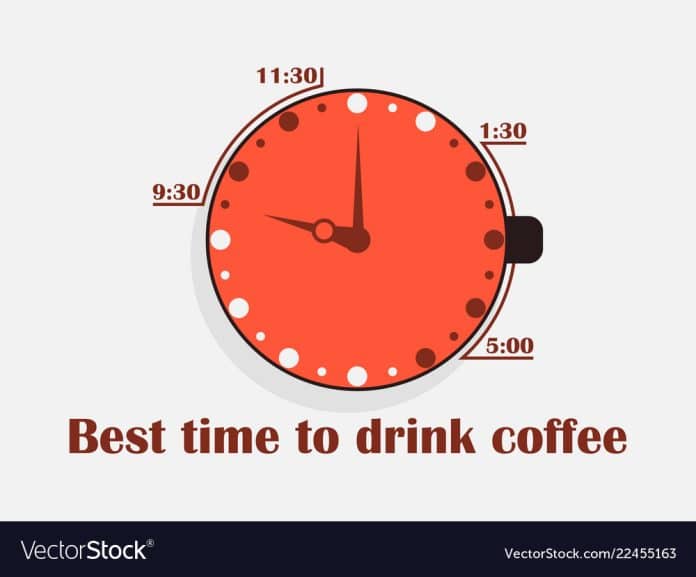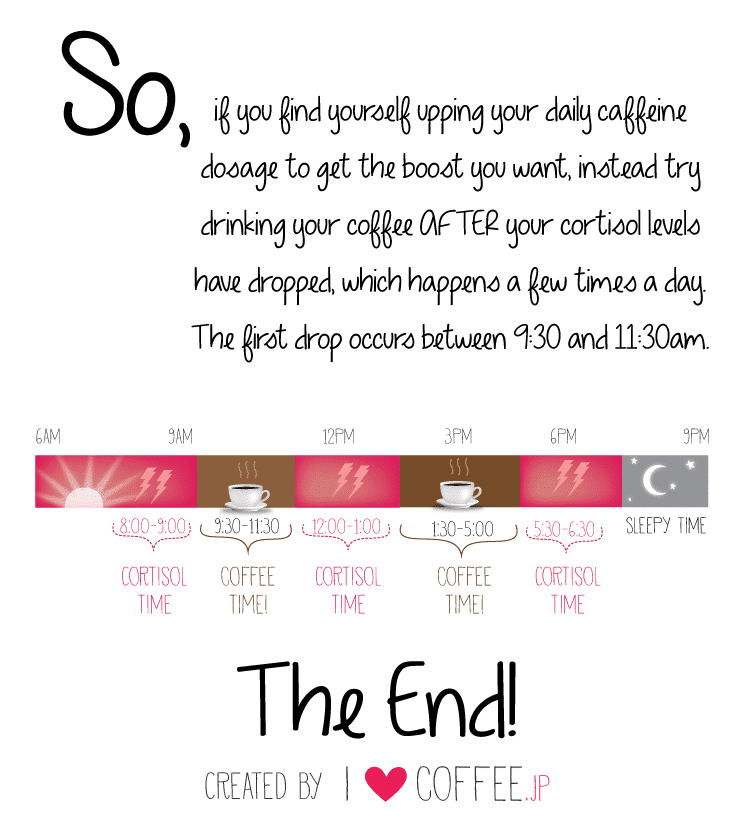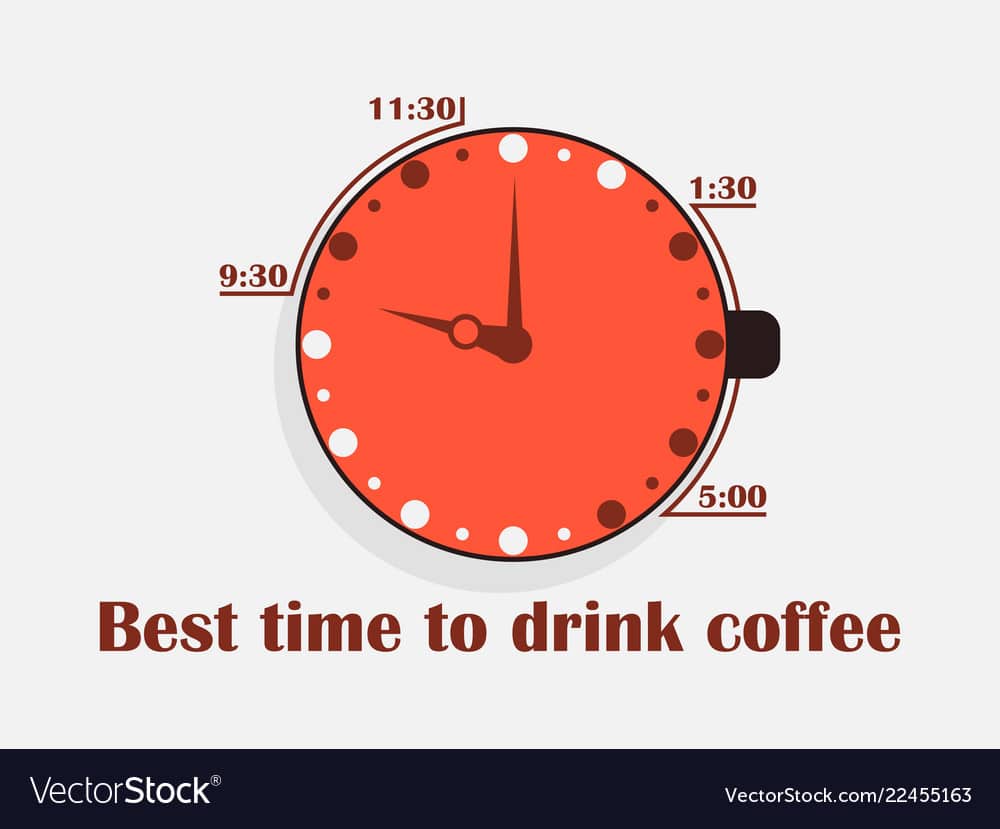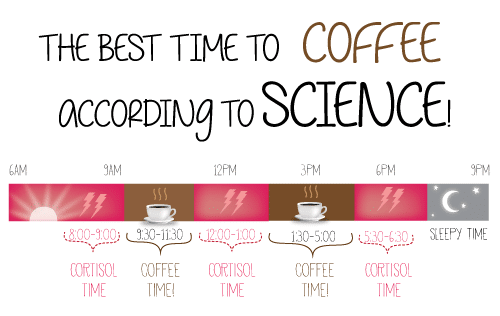Are you a coffee lover who constantly wonders when is the ideal time to indulge in your favorite brew?
Look no further, as this article aims to shed light on the best timing to savor your cup of joe.
From early risers to night owls, we will explore the factors that can affect the effectiveness and enjoyment of your coffee, helping you find the perfect time to take that energizing sip.
So, grab your favorite mug and join us on this caffeine-fueled journey!
Morning
Shortly after waking up
Shortly after waking up, the morning is a great time to enjoy a cup of coffee. As you start your day, a hot cup of coffee can help to invigorate and energize you, providing that much-needed boost to kickstart your morning.
Caffeine stimulates your central nervous system, making you feel more alert and awake. It can also improve cognitive function, helping you to focus and concentrate on the tasks ahead. So, grab your favorite mug and savor that first sip of coffee to get your day off to a great start!
Mid-morning
During mid-morning, coffee can be a welcome pick-me-up. By this time, you may have been engaged in various activities for a few hours and can feel a dip in your energy levels.
This is a perfect opportunity to reach for another cup of coffee and recharge. The caffeine in coffee acts as a stimulant, increasing the production of neurotransmitters like dopamine and adrenaline, which can help you feel more awake and alert.
A mid-morning cup of coffee can give you the mental clarity and focus to power through the rest of your day.
Afternoon
Early afternoon
The early afternoon can be challenging when it comes to maintaining energy levels and staying focused. This is where a cup of coffee can come in handy. Drinking coffee in the early afternoon can provide a much-needed boost to keep you going.
Caffeine caffeine can increase your metabolic rate and stimulate the release of stored fats, resulting in a temporary energy boost.
However, be mindful of not consuming excessive amounts of caffeine, as it may lead to restlessness or interfere with your sleep later in the evening.
Mid-afternoon
Similarly to the early afternoon, the mid-afternoon is another period where many people experience a slump in energy and concentration. This is a great time to enjoy a cup of coffee and reap its benefits once again.
The caffeine in coffee can help to combat fatigue and mental fog, helping you to stay productive and focused on your tasks. So, whether studying, working, or engaging in any other mentally demanding activity, a well-timed cup of coffee can give you that extra push to finish the day strong.
Evening
Late afternoon
As the day progresses into the late afternoon, drinking coffee can still be enjoyable, but it’s essential to be mindful of caffeine intake. At this time of day, it’s recommended to opt for decaffeinated coffee or coffee alternatives to avoid the potential interference with your sleep.
However, a moderate amount of regular coffee can still be consumed if you have a higher caffeine tolerance or an evening workout planned. Ultimately, listening to your body and assessing how caffeine affects your sleep patterns and overall well-being is crucial.
Evening
In the evening, it’s generally advisable to avoid drinking coffee. Consuming coffee in the evening can disrupt your sleep patterns and make it harder to fall asleep. The stimulating effects of caffeine can keep you awake and interfere with your body’s natural sleep-wake cycle.
While caffeine tolerances vary, it’s best to stick to decaffeinated options or choose herbal teas that promote relaxation before bed. Creating a nighttime routine that excludes caffeine can help you unwind and prepare for a restful night’s sleep.
Night
Late evening
It’s best to refrain from consuming coffee in the late evening. As bedtime approaches, allowing your body to wind down and prepare for sleep is essential.
Caffeine, even in small amounts, stimulates your nervous system and can make it more difficult to achieve restful sleep.
Instead of relying on coffee or other caffeinated beverages to stay awake, focus on creating a relaxing environment conducive to sleep. Consider engaging in activities like reading a book, listening to soothing music, or practicing relaxation techniques to promote a peaceful night’s rest.
Before bed
Ideally, it is recommended to avoid drinking coffee before bed. However, if you need a slight energy boost or study late into the night, it’s crucial to be mindful of caffeine intake. It’s best to opt for decaffeinated coffee or other non-caffeinated alternatives to prevent unwanted stimulation and sleep disturbances.
Suppose you regularly struggle with sleep quality or have a sensitivity to caffeine. In that case, it may be wise to establish a cutoff time for consuming caffeine to ensure a restful night’s sleep.
Pre-workout
30-60 minutes before exercising
If you plan to hit the gym or engage in physical activity, drinking coffee 30-60 minutes before your workout can offer several benefits. Caffeine acts as a stimulant, increasing your heart rate and adrenaline levels.
This, in turn, can enhance your performance and endurance during exercise. Coffee has also been shown to help mobilize stored fats and increase fat oxidation, making it a potential aid for those looking to burn fat.
However, it’s important to note that individual responses to caffeine can vary, and it’s essential to find what works best for your body and exercise routine.
Post-workout
Within 30 minutes of exercising
After a strenuous workout or intense exercise session, consuming coffee within 30 minutes can aid recovery. Coffee contains antioxidants that can help reduce exercise-induced muscle damage and inflammation.
Additionally, the caffeine content in coffee can help replenish glycogen stores in your muscles and speed up recovery. Enjoying a coffee or a coffee-infused protein shake post-workout can be a delicious and beneficial way to support your body’s recovery and optimize your fitness journey.
Study time
When preparing for exams or studying
A cup of coffee can be helpful during study sessions or when preparing for exams. Coffee has been shown to have cognitive-enhancing effects, improving focus, concentration, and mental alertness.
The caffeine in coffee stimulates the central nervous system and increases the production of neurotransmitters like dopamine and norepinephrine. These neurotransmitters play a crucial role in enhancing cognitive function. However, finding the right balance and avoiding excessive caffeine intake is essential, as it may lead to restlessness or jitters.
Social interactions
During social gatherings or meetings
Sharing coffee during social gatherings or meetings can create a warm and welcoming atmosphere. Coffee has long been associated with socializing, providing an opportunity to connect with others over a shared beverage.
Enjoying coffee together can promote conversation, relaxation, and bonding.
Whether catching up with friends over a cup of coffee or networking during business meetings, coffee can serve as a social lubricant, facilitating communication and fostering connections.
After a meal
With or shortly after breakfast
Caffeine and a delicious breakfast can go hand in hand. Having a cup of coffee with or shortly after breakfast can be a delightful way to start your day.
Combining a nutritious meal and a cup of coffee can provide an energizing and satisfying experience. Coffee can help to stimulate digestion and enhance nutrient absorption, supporting your body’s metabolism and promoting overall well-being.
However, it’s essential to be mindful of how your body responds to caffeine, as some individuals may experience digestive discomfort when consuming coffee on an empty stomach.
With or shortly after lunch
A cup of coffee with or shortly after lunch can be a pleasant indulgence. Coffee can help to alleviate post-lunch drowsiness, keeping you awake and alert during the afternoon slump. Additionally, coffee may slightly increase your metabolic rate, aiding digestion and preventing bloating after a meal.
However, it’s crucial to be aware of the potential impact of caffeine on your sleep quality. If you have a sensitive sleep routine, opting for decaffeinated coffee in the afternoon to avoid interference with your nighttime rest may be advisable.
Weight management
Before physical activity for fat-burning
Consuming coffee before physical activity can be beneficial if you aim to burn fat and optimize weight management.
Caffeine can increase your metabolic rate and stimulate the release of stored fats. It acts as a thermogenic, promoting fat burning during exercise.
However, it’s important to note that while coffee can aid in fat oxidation, it is not a substitute for a balanced diet and regular exercise routine.
Coffee should be seen as a complementary component of an overall healthy lifestyle.
Before meals for appetite suppression
For those seeking appetite suppression or weight management, drinking coffee before meals can be an effective strategy.
The caffeine in coffee is an appetite suppressant, temporarily reducing hunger pangs and cravings. This can lead to reduced calorie intake and aid in weight management efforts.
However, it’s essential to approach this strategy mindfully and ensure you still consume a balanced and nutritious diet. Depending solely on coffee suppressing appetite is not a sustainable or healthy long-term approach.




































